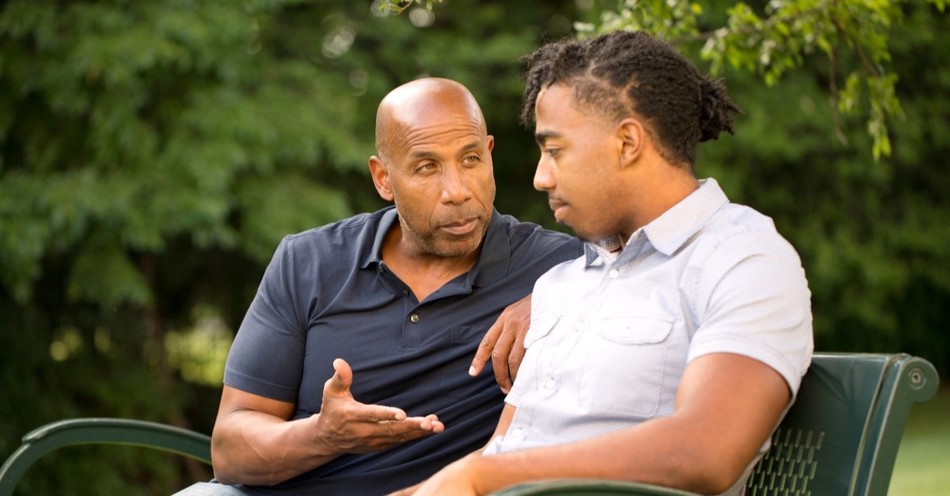Years ago, my friend Elizabeth came to me with a question. A young lady in her church asked if she would be her mentor. The young lady picked an excellent choice, because Elizabeth is a wise, spiritually mature, Godly woman. However, as Elizabeth was discussing this request, she turned to me with a bit of apprehension and asked, “What exactly does she want me to do with her?”
Elizabeth faced the same perplexing question any mentor faces. Many believers have never experienced the blessing of a spiritual mentor in their own life. Without an example to follow, it can be intimidating to agree to mentor a younger believer. Elizabeth wanted to be a positive influence and provide spiritual encouragement in this young lady’s life. However, she didn’t have a vision for what to do in their time together.
I have enjoyed the blessing of mentoring many ladies, and for each, the specifics of our time together varied based on individual or group dynamics. While a single article can’t provide an exhaustive manual on how to mentor, I do hope to provide a basic direction for those who want to invest in the lives of others, but don’t know where to begin.
Generally, well-balanced discipleship consists of encouraging three relational facets of a younger believer’s walk with God: the person’s relationship with God, the church, and the world. Each month it is helpful to try to steer the conversation towards a different area, so that you are faithful to encourage and build up the entire believer. If you only talk about a person’s relationship with God, you may meet for months before you realize he is struggling in his marriage. If you only talk about parenting, you may miss out on the opportunity to discuss her potential for evangelism with her new neighbor. These three categories will naturally overlap, but it is helpful to concentrate on a different emphasis each time you meet.
Relationship with God
One of the most important areas to discuss with the person you are mentoring is his or her relationship with God. Rather than just asking behavioral questions (e.g. “Are you reading your Bible every day?”), I find it more insightful to ask questions that probe the younger believer’s affections, (e.g. “Over the past month, what is one passage of the Bible that God has used in your life? Why was it so impactful for you?”). For prayer, you could spend your time together looking at different prayers in the Bible and ask the younger believer how she would like to grow in her prayer life. During these times, feel free to share how God is impacting and growing your own faith. Observing and reflecting upon your relationship with God in the midst of struggles and victories will help a younger believer develop a vision for a more mature walk with God.
Relationship with God’s People
Encouraging a younger believer’s relationship with God’s people encompasses a number of different areas. Obviously, topics regarding church attendance, service, fellowship opportunities and spiritual gifts would be items to discuss with the person you are mentoring. It is also the category for which to include topics like marriage, parenting or the person’s relationship with his or her parents. Asking open-ended questions such as, “Is there anyone in your life you struggle to forgive? Why?” can lead you to understand and get to know the person you are mentoring in a deeper way.
Relationship with the World
Understanding how the person you are mentoring relates to the world is also an important category to discuss on a regular basis. One person may spend her time so consumed with worldliness (working excessive hours for monetary gain, shopping, watching TV, enjoying recreations) that it affects both her relationship with God and her relationship with the church. Another person may avoid the world altogether and miss opportunities to share his faith. Helping a younger believer develop a heart for missions, service to the poor and evangelism affords them the opportunity to learn how to be in the world, but not to become like the world.
While every mentoring relationship will be different, these three areas are important to reflect upon in different meetings with those you mentor. In his letter to the Ephesians, Paul instructs, “Be very careful, then how you live – not as unwise but as wise, making the most of every opportunity, because the days are evil” (Eph. 5:15-16). Our goal is to live wisely and encourage others on the journey of faith to do the same. As one part is strengthened and encouraged, the entire body benefits. I encourage you: don’t wait! Start today, building the church by building up God’s people. You will be blessed as you enjoy the pleasure of being a blessing.
Melissa Kruger serves as Women's Ministry Coordinator at Uptown Church in Charlotte, North Carolina and is the author of The Envy of Eve: Finding Contentment in a Covetous World (Christian Focus, 2012). Her husband Mike is the president of Reformed Theological Seminary, and they have three children. You can follow her on Twitter @MelissaBKruger.
Photo Credit: Getty Images/digitalskillet









